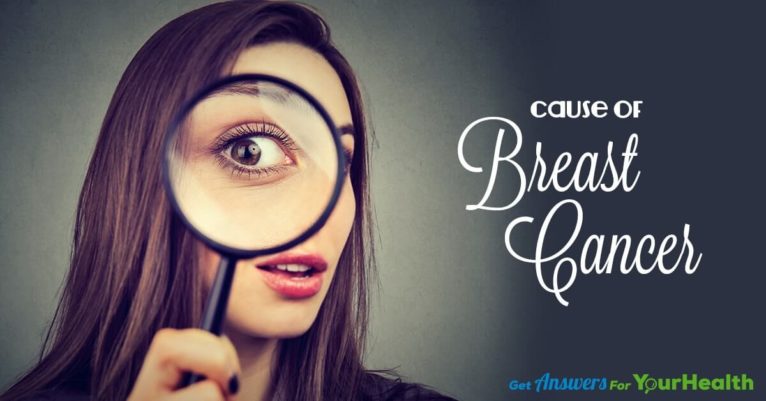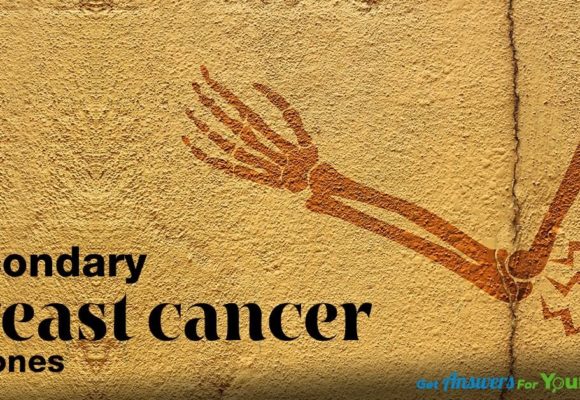1) Grab a FREE copy (Value $14.95) of one of my books Thyroid Symptom Overload
Just pay shipping $7.95 for any US orders. Or, if you want to pay full price plus shipping, order from Amazon :)
2) Take our Thyroid Quiz today and find out what "Thyroid Type" you have
This quiz will help you quickly discover where your symptoms are stemming from.
3) Join Our Thyroid Advocate Membership Site - Natural Thyroid Academy
FREE for a limited time. No credit card required.
4) Work with me and my team privately
Schedule your FREE 15 minute phone consultation and we can find out the best way to help you specifically.
Breast cancer is the leading cause of cancer in women. Almost 12% of women suffer from this deadly disease in their lifetime. Men can also develop breast cancer but the incidence is relatively low. Breast cancer is a matter of concern as its incidence is increasing for the past years. In contrast, during the time period between 2002-2003, breast cancer prevalence decreased due to the controlled use of hormone replacement therapy. The avoidance of hormone replacement therapy was a publicized project in the US that resulted in considerable decrease in the breast cancer cases.
Apart from hormones, there are many other factors that caused increased incidence of breast cancer. You should know what the factors are that can cause breast cancer. This knowledge can help you prevent breast cancer. Or least it will help you address it in its early stage. In turn, it will result in early diagnosis and prompt intervention from your primary doctor.
The Main Reason Behind Development Of Breast Cancer:
The cells in your breast tissue behave like other cells in the body (same mechanism for cell regulation with different functions). Normally, the cells in our body divide, grow, and ultimately die when their lifespan is completed or there is no need of them. Without the requirement in the body, no new cell is formed.
Our body has many mechanisms that strictly regulate these processes. These mechanisms are directed by genetic material. Genetic material (genes) is basically the coded script for the cell to perform function. As the cell is the structural and functional unit of the body, genes guide the overall structure as well as function of the body. If genetic information gets disrupted, the function of the cell is compromised. This is what happens in mutation.
Mutation is described as a sudden change in gene. Mutation can be beneficial (that is rare), neutral and harmful. If mutation upsets the normal mechanism of cell growth and regulation, abnormal cells are produced. The mass of aggregated abnormal cells is known as tumor. Tumor develops typically when cells divide rapidly and the older cells don’t die even when there is no need of them. A tumor can be benign (innocent) and malignant also known as cancer (with the potential to invade surrounding cells and tissues).
When a mutation occurs in the cells of the breast, they start dividing rapidly. As a result, tumors can develop. Initially the tumor is less aggressive. With the advancement of breast cancer, the tumor may invade other organs of the body like the lungs, bones etc.
The Factors Responsible For The Development Of Breast Cancer:
It is still unclear what exactly causes the mutation that results in breast cancer. Though there are many factors that are greatly linked with the occurrence of breast cancer. It is not necessary that people have any of these factors (high risk). It is also possible that people having low risk might suffer from this type of cancer. However, the following risk factors greatly increases the chance of having breast cancer.
Gender – Being a Woman:
Gender is the greatest risk factor for developing cancer and it cannot be modified. You should know that merely being a woman significantly increases the likelihood of having breast cancer. It is to the extent that 1 in every 8 women in the US will suffer from breast cancer during their lifetime.
The increased incidence of breast cancer in women is due to the presence of a hormone known as estrogen. Estrogen is the chief female hormone, although it is present in males too but in low quantity. This primarily female hormone is associated with the development of breast cancer. Normally estrogen is responsible for the development of secondary female characteristics along with the regulation of normal menstrual cycle and carrying out pregnancy. An optimal amount of estrogen is required to carry out the normal breast development (one of the many functions of estrogen). An increase in the estrogen level cause rapid multiplication of the breast cells and breast cancer develops. A number of factors can increase the estrogen level in the body. They may include the early start of menstruation or the late termination of menstruation.
Hormonal Role:
By now, you must have an understanding of how large amount of estrogen in the body increases the risk of cancer. This hormonal role of estrogen is very important to know, as there are some choices that can be modified to decrease the chances of breast cancer. Other than the natural menstrual cycle of the body and pregnancy changes that influence the amount of estrogen, hormone replacement therapy is the self-made choice that increases the estrogen level in the body. With many benefits of the therapy, there is also an adverse effect – the development of breast cancer.
After menstruation ceases, estrogen levels in the body drop until there is little production of estrogen hormones. It is normal aging process, as a woman does not need this hormone anymore – the breasts are already formed (all secondary female features are developed) and the uterus can’t conceive a child. However, some women choose to get hormone replacement therapy (to keep the estrogen hormone level in the body) due to its positive effects on bones and also to cancel out the postmenopausal symptoms. As mentioned earlier, this results in the increased breast cancer development rate in these women. In the US, during 2002-2003 time period, the incidence of breast cancer significantly declined due to the less use of hormone replacement therapy.
Advancing Age:
Advancing age is yet another risk factor for the development of breast cancer. Generally, women older than age 50 are more likely to have breast cancer. Age is such a strong risk factor, that 8 out of 10 cases of breast cancer occurs in women older than 50 years of age.
The advancing age poses the cells to cancer occurrence by two ways. First, with advancing age, the repair mechanisms of the body slow down. Normally, even if a cell tries to misbehave (divides rapidly), tumor suppression genes act on it and consequently destroy it. But due to the wear and tear on the systems of the body, and with the increasing age, the check and balance on the cells is disrupted. Because of this failed repair mechanism, tumor cells grow and cancer can often develop. The other reason for the association of old age women and breast cancer is menopause. The majority of postmenopausal women seek hormonal replacement therapy. This increases the chances of developing breast cancer as mentioned earlier.
Obesity:
Obesity is a risk factor for women after menopause. Strangely, before menopause, obesity has little to no effect on breast cancer. Some studies suggest that in premenopausal women, obesity in fact decreases the chances of having breast cancer. This relationship is of debate and extensive research is needed regarding it. However, obesity is not encouraged even if the association proves to be true. This is because obesity has more negative effects on health that cancels the positive effect, if there is any.
In postmenopausal women, there is a strong association of obesity and breast cancer occurrence (Appleby PN, Reeves GK, et al, 2011). The reason is simple. After menopause when estrogen production stops, fat cells convert to estrogen. Estrogen is produced (through the conversion of fat only) when there is no requirement of this hormone in the body. As estrogen helps the breast to grow, the cells of already developed breast tissue, start multiplying under the influence of newly produced estrogen. This predisposes the breast cells to cancer development. To know more about how obesity impacts breast cancer, click here. (hyperlink of obesity and breast cancer).
Family History:
Although less cases of breast cancer are hereditary, they are a small percentage of the total incidences. Positive family history of breast cancer is a risk factor for the development of breast cancer. A woman with first-degree relatives having breast cancer is two to three times more likely to develop breast cancer. The risk increases even greater if she has more than one first-degree relative that has been affected.
The two most important genes responsible for hereditary breast cancer are BRCA genes including BRCA1 and BRCA2. These genes are tumor suppressor genes. Mutation in these genes disrupts the normal check and balance on the cells. Thereby, if a cell starts multiplying rapidly, it cannot be destroyed, leading to the development of cancer. You may see that having an inherited mutated gene doesn’t always cause cancer. It only increases the chances of having breast cancer. Many women have already benefited from the knowledge of hereditary breast cancer. Genetic testing identifies if a woman has mutated genes as a part of inheritance. The women having inherited genes responsible for breast cancer can take steps to prevent the disease development. Or in other cases, they can undergo regular screening to identify the breast cancer at its early stage, which is the most treatable stage.
Radiation Exposure:
Radiation exposure is believed to cause cancer of all types, including breast cancer. Chest exposure to radiation for any reason makes the cells multiply faster. The women, who are treated for Hodgkin’s disease earlier in life, have increased incidence of breast cancer. The risk is around 3-7 times greater (BMC Cancer, 2012). However, the benefit of radiation therapy for the treatment of Hodgkin’s disease outweighs the increased chance of breast cancer.
Low dosage of radiation does not have a significant effect on breast cancer. The radiation used for screening of breast cancer (mammogram) for long durations, only slightly increase the chances of breast cancer, but the increase is really small. Again, the beneficial effect of screening cancels out this minor increase in the risk. Unnecessary or extra exposure to radiation should be avoided.
Conclusion:
Breast cancer affects a large number of women. The main cause for the development of breast cancer is the mutation in genes. Why mutation occurs is still unknown. However, there are many factors that predispose women to breast cancer. They include the gender (being women) and advanced age being on the top. The other factors are hormonal changes, positive family history, obesity, and radiation exposure. Please consult your doctor with any specific questions.
References:
http://www.webmd.com/breast-cancer/guide/what-causes-breast-cancer
http://ww5.komen.org/Breastcancer/Radiationexposureinyouth.html
http://www.mayoclinic.org/diseases-conditions/breast-cancer/symptoms-causes/dxc-20207918
http://www.nationalbreastcancer.org/causes-of-breast-cancer
https://www.cancer.org/cancer/breast-cancer/about/how-does-breast-cancer-form.html
http://www.nhs.uk/Conditions/Cancer-of-the-breast-female/Pages/Causes.aspx
http://www.nejm.org/doi/full/10.1056/NEJMsr070105#t=article








